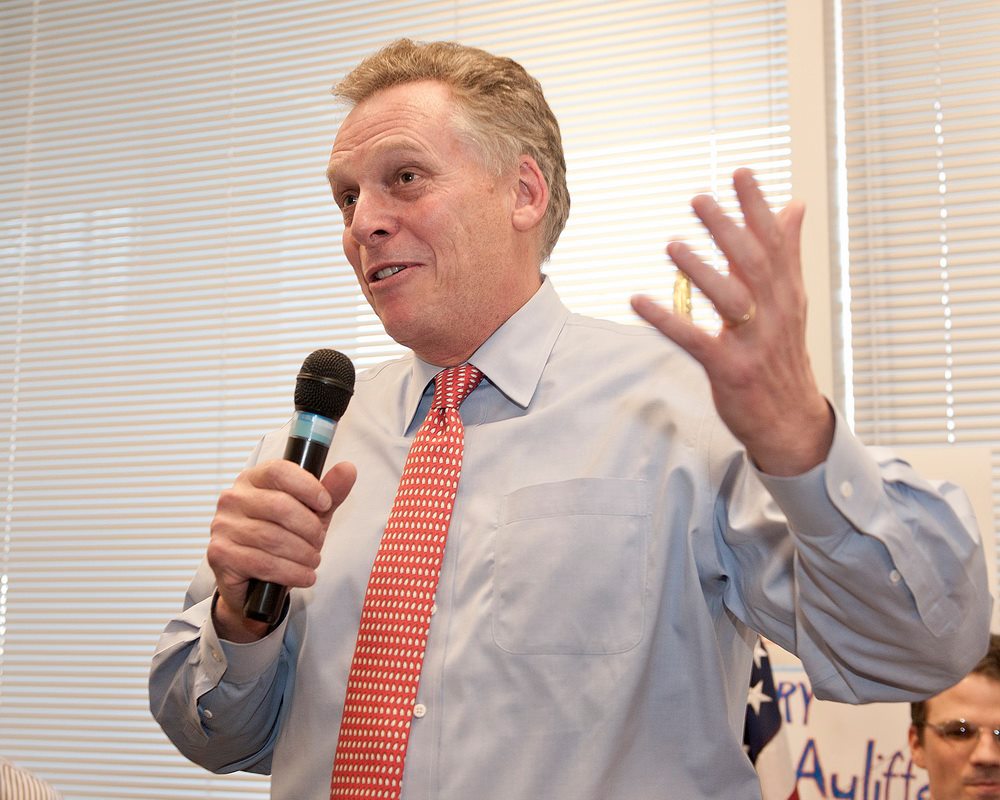
FacebookTerry McAuliffe used to oppose offshore oil drilling, then he lost a gubernatorial primary and now he’s running as an offshore drilling supporter.
Lawmakers are talking up the prospect of drilling off the Virginia coast, and the mere whiff of the possibility of oil profits has already driven one prominent candidate there to sway in the wind.
For a time, the Deepwater Horizon calamity had put the brakes on offshore drilling, and the Obama administration responded by slapping moratoriums on the practice off coastlines around the country. (A moratorium covering the Gulf of Mexico was quickly lifted by the Interior Department.)
But the memory of the Gulf oil spill apparently does not weigh heavily on either of Virginia’s Democratic senators nor on Rep. Scott Rigell (R-Va.). They have introduced bills in Congress that would put an end to the drilling moratorium off the coast of their state. From offshoretechnology.com:
According to [Sen. Mark] Warner, 12.5% of Virginia’s 50% share [of public drilling revenues] will be earmarked for environmental conservation efforts, while the remaining 37.5% will be put into the state’s general fund.
The senator also said that it is difficult to put a figure on the amount of money that Virginia will receive, as it is not clear how much natural gas and oil is available for drilling off the coast.
On the other hand, Virginia Sierra Club chapter director Glen Besa said that offshore drilling can “jeopardize” the state’s tourism and fishing industries.
“As we saw with the Gulf oil disaster, oil spills decimate tourism and fishing industries. In Virginia, that means risking over $2.5bn and over 100,000 jobs in industries that depend on healthy ocean and Chesapeake Bay waters and clean beaches,” Besa added.
The 2010 Deepwater Horizon disaster seems to have had an even more curious impact on former Democratic Party chair and Virginia gubernatorial candidate Terry McAuliffe.
Since losing the Democratic primary in 2009 and launching another campaign to try to win office in 2013, McAuliffe has flipped and flopped on the drilling issue.
When McAuliffe ran for governor in 2009, he opposed drilling for oil off Virginia’s coast — a position that his opponents attacked. “Our priority on energy needs to be on efficiency measures and renewable sources of energy,” he said in the Washington Post in 2009. “As governor, that will be my focus. We need to invest in renewable energy and look for opportunities to create green jobs.”
Then Creigh Deeds easily won the Democratic gubernatorial primary, the Deepwater Horizon thing happened, a few years passed, and now McAuliffe is running again for governor — and this time he is all about offshore drilling. From the Washington Post:
“Terry has learned more about offshore drilling from experts in Virginia,” said McAuliffe spokesman Josh Schwerin. “He thinks that because of technological progress we can now do it in a responsible fashion.”
It seems that, at least for one former champion of renewable energy, the heartache of losing a primary has proven more persuasive than the heartache of watching an environmental disaster play out in the Gulf of Mexico.


